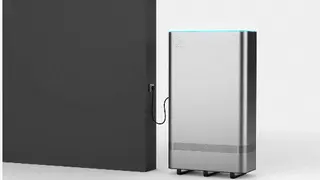Many believe that 2021 will be the year of the electric vehicle (EV). And with the recent Budget extending the tax holiday for start-ups, it is also a cue for entrepreneurs waiting in the wings to play their role in the transformation that will hit Indian roads.
With the arrival of Elon Musk’s Tesla and multiple offerings by players in all segments — two-, three- and four-wheelers — we seem to be slowly inching towards India’s 2030 EV ambition. The country hopes that by the end of the decade, 70 per cent sales of commercial cars, 30 per cent of private cars, 40 per cent of buses and 80 per cent of two- and three-wheelers will be in the electric segment.
But building the EV ecosystem does not come easy. To meet such a massive target, experts estimate a cumulative investment of about ₹12.5 lakh crore. What is heartening, however, is that going electric has fired the imagination of young entrepreneurs. Start-ups are looking at a range of EV-related segments — from building charging stations and retrofitting fossil fuel vehicles to investing in R&D.
And each of these sectors will be needed to realise the EV dream. The think tank Council on Energy, Environment and Water estimates that by FY30, battery demand would be at 158 GWh and the 102 million EVs expected to be on the roads then would need 2.9 million public chargers.
Addressing range anxiety
Taking the demand for chargers as an opportunity, Bengaluru-based Charzer has launched the ‘Kirana Charzer’, a compact, low-cost, zero-maintenance charging station. Its 26-year-old co-founder Sameer Ranjan Jaiswal says that it is IoT-enabled and can be installed in small kirana stores, theatres, restaurants, malls — just about anywhere. Through the Charzer app, vehicle owners can locate charging facilities. For establishments that host the Kirana Charzer it becomes an additional source of income. “The charging unit costs ₹10,000 and runs on the store’s electricity connection,” Jaiswal explains.
The concept, pioneered by Jaiswal along with Dheeraj Reddy and Yugraj Shukla, was inspired by a frustrating experience where a friend could not find a charging station and had to walk a long way home with his two-wheeler. Before Charzer, the team had launched FAE Bikes, an EV scooter rental and fleet management start-up.
“Our experience in managing an EV fleet helped us identify the pain points. Range anxiety is a significant barrier for consumers (seeking) to switch to EVs,” he says.
Last-mile delivery
EV fleet management, in fact, has been the choice of several start-ups. They feel it will solve the pollution issue in cities. With the pandemic making e-commerce a popular option, it also provides a cost-efficient solution for last-mile delivery services.
Delhi-based Zyngo Mobility is a last-mile fleet service provider and operator founded by 29-year-old Prateek Yadav. Started in 2019, the company addresses bottlenecks that players like Amazon or Flipkart and grocery platforms such as Big Basket and Grofers face in last-mile delivery in terms of cost, timing and tracking. “Last-mile delivery was handled by vehicles which were fossil fuel propelled. When we did the cost analysis, we could foresee that electric vehicles were almost 35 per cent less expensive,” Yadav says.
The second advantage is that unlike commercial heavy vehicles, which have ‘No Entry’ timings imposed in cities, the Zyngo fleet can operate at all hours. Third, the journey can be tracked from the warehouse to the customer. In over a year, Zyngo has a fleet of 250 electric loaders in the Delhi NCR region and is expanding in Bengaluru, Jaipur and Chandigarh.
Zyngo sets up its own charging and battery swapping network as well. “In whichever city we are trying to enter we will help develop the EV ecosystem, which other players can also utilise,” Yadav says.
Ace at retrofitting
Offering a basket of services and choices seems to be the start-up mantra. Hyderabad-based E-Trio goes the whole hog. It builds new products, converts fossil fuel vehicles — two-, three- or four-wheeler — into EV offerings, provides intra-city logistics through the retrofitted Tata Ace (eLCV), and offers a customer app that gives you a summary of your EV or fleet.
“It all started in 2016 as a garage project when we began converting a Maruti Alto into an e-car,” recalls co-founder Deepak MV, who along with Sathya Yalamanchili recently launched the much-in-demand three-wheeler range Touro. “Solutions are being worked out for an EV ecosystem, but it will help immensely if the country has charging infrastructure and financing models in place,” Deepak concludes.








Comments
Comments have to be in English, and in full sentences. They cannot be abusive or personal. Please abide by our community guidelines for posting your comments.
We have migrated to a new commenting platform. If you are already a registered user of TheHindu Businessline and logged in, you may continue to engage with our articles. If you do not have an account please register and login to post comments. Users can access their older comments by logging into their accounts on Vuukle.